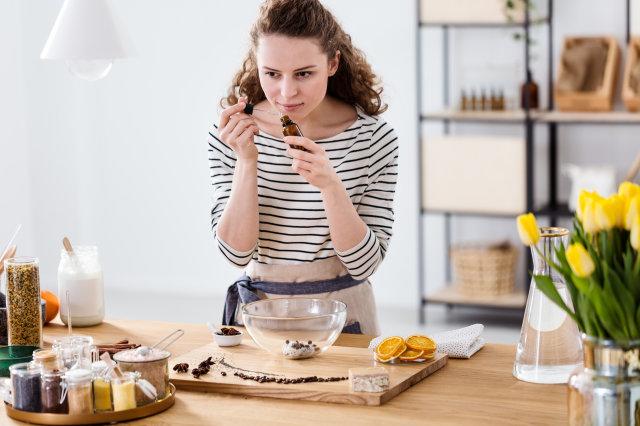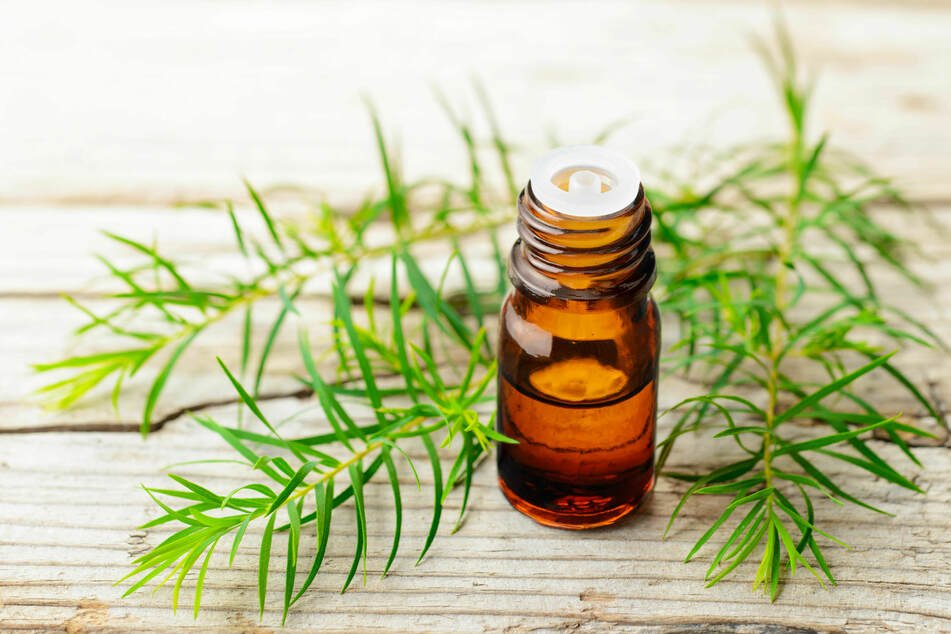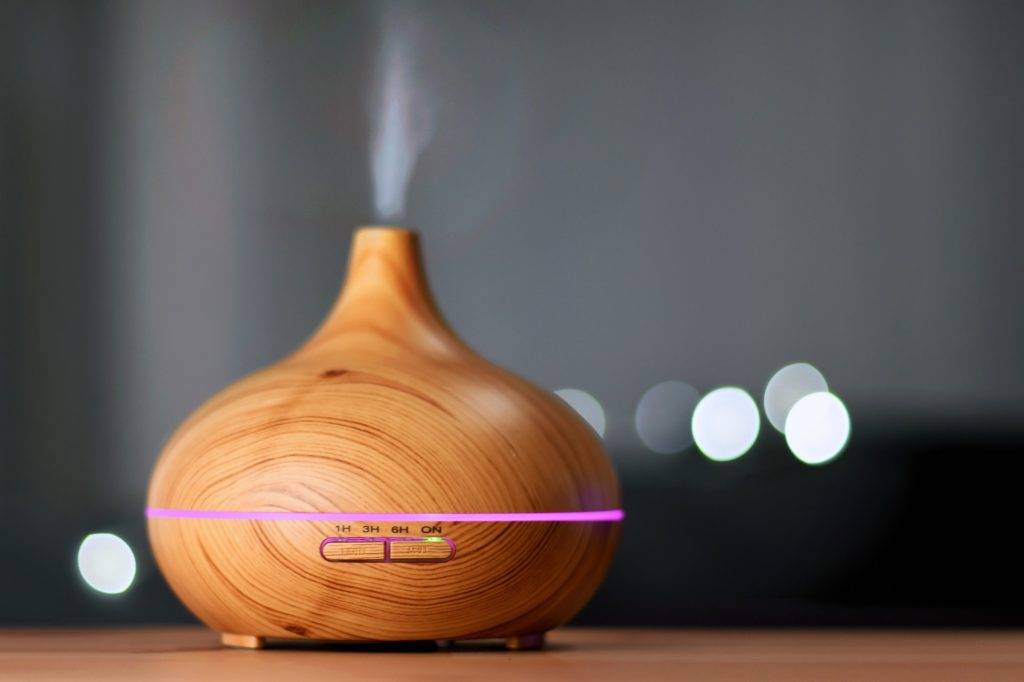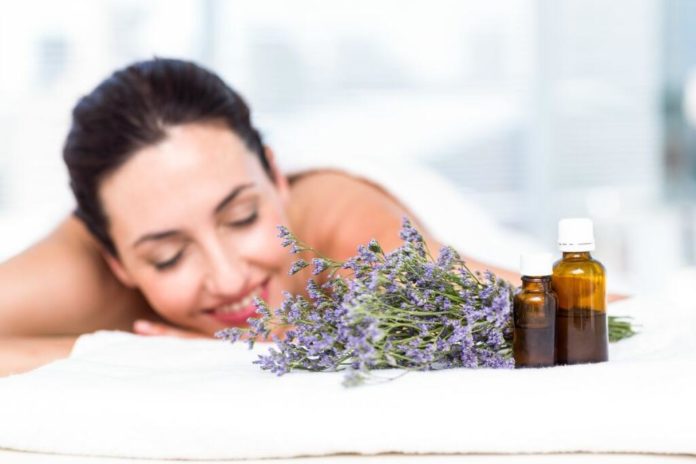Humans have used aromatherapy for thousands of years. They are often used for relaxation, beauty care, home cleaning, and most often used as natural medicine. Scientific studies continue to prove the many aromatherapy benefits you can take advantage of. Ancient cultures in China, India, Egypt, and elsewhere incorporated aromatic plant components in resins, balms, and oils.
Now, you can reap numerous benefits for your mental and physical health easier than ever before. Let us find out what aromatherapy is, how it works, and how to incorporate it into your lifestyle.
What is Aromatherapy?
Aromatherapy is a holistic healing treatment that uses natural plant extracts to promote health and well-being. A practice that uses essential oils to heal ailments or create calming effects for the body, mind, and spirit. The overall purpose of aromatherapy is meant to improve your physical and mental well-being.
Essential oils are located in a plant’s roots, stems, leaves, and blossoms, and they are multifaceted, offering a range of therapeutic effects that can vary according to their composition. The original scientific term used for essential oils is a volatile oil. The volatile oil of a plant is the part that disperses quickly into the air. They are created by distilling plants and extracting the concentrated oils produced. These plant oils contain properties that help with relaxation, anti-inflammation, and disinfection.
It’s important to understand that because essential oils are a highly concentrated extract of a plant, they should be used differently than you would the plant itself. Here are a few examples of how you can use essential oils outside of aromatherapy.
In your DIY beauty products
Essential oils can also be used when making your own toxin-free home and beauty products. Making your essential oil products lets you control what goes on your skin and hair. As they may seem subtle and sweet, essential oils pack a powerful punch when it comes to cleaning and disinfecting. You can have a clean and germ-free home by using just five simple essential oils and nothing more.
As a natural bug repellent
Anecdotal evidence and multiple studies indicate that scores of essential oils are strongly repellent to bugs. In the winter, bugs may try to creep into your home through cracks and openings in the walls. They tend to find a way to bite you. With that, You can apply a drop or two straight to the skin for the strongest medicinal effect, or combine oils with water and vinegar for a skin-safe bug repellent. To compile this list of the most effective tick repellent essential oils, we analyzed studies that prove their effectiveness for people. These are lavender, cinnamon, orange, basil, cedarwood, and lemon.
In homemade cleaning products
While individual oils have potent cleaning powers, these are compounded when they are mixed with other oils which increases their potency. You can simply create cleaning products that are safe for you and your family easily using essential oils as well. Most solutions can be made by mixing 10 drops of oil in a gallon of water and vinegar to make a spray. Then, just wipe surfaces clean with a cloth. Add in orange essential oil too for some grease-fighting action.

How do aromatherapy essential oils work?
Essential oils are most commonly used in the practice of aromatherapy, in which they are inhaled through various methods. You can do aromatherapy alone or an aromatherapist can be useful too as they will walk you through which essential oils are best for your specific needs. When inhaling the aromas from essential oils or out on your skin, the olfactory sensors sends signals to the brain and can stimulate areas of your limbic system, which is heavily involved in forming memories, emotions, and pleasures. The limbic system also plays a role in controlling several unconscious physiological functions, such as breathing, heart rate, and blood pressure.
Essential oils are available online, in health food stores, and some regular supermarkets. It’s important to buy from a reputable producer since the oils aren’t regulated by the FDA.
Aromatherapy works through the sense of smell and skin absorption using products such as these:
- diffusers
- inhalers
- aromatic spritzers
- facial steamers
- clay masks
- body oils, creams, or lotions for massage or topical application
- bathing salts
- hot and cold compresses
What Are Some Key Aromatherapy Benefits for Health?
Aromatherapy has an array of benefits. Both your physical and mental health. The different essential oils used will have unique health effects depending on their properties. Let’s check out a few interesting aromatherapy benefits.
- Improves headaches
Almost all oils have analgesic properties. Sometimes too much stress can even cause migraines, which are among the most painful headaches. Recent studies have observed reduced headache pain after applying peppermint and lavender oil to the skin. Aromatherapy can combat headache tension as it sends signals for the body to relax and decompress.
In a traditional Persian headache remedy, it has been suggested that applying a mixture of chamomile and sesame oil to the temples may treat headaches and migraines.
- Relieves congestion and asthma
Conventional medicine suggests that over-the-counter and prescription medications are the most effective means of combating asthma and finding natural allergy relief. However, there is a safer, non-toxic way to effectively reduce inflammation without the need for man-made drugs. It is essential oil. Essential oils that reduce inflammation are ideal if you have a cough, or suffer from asthma. The best way to use it when you’re sick is to pour hot water into a bowl and add in a few drops of oils. Then, hold a towel over your head and the bowl to inhale the steam for about 15 minutes.
- Combats insomnia
Smelling lavender oil has been shown to improve the sleep quality of women after childbirth, as well as patients with heart disease. A lack of sleep can throw off your entire next day. And you may even feel more emotional too. Lavender oil is specifically known for aiding in relaxation. One review examined 15 studies on essential oils and sleep. The majority of studies showed that smelling the oils — mostly lavender oil — had positive effects on sleep habits.
Research has shown that plant oils can reduce stress, relieve anxiety, and improve symptoms of depression. It has been estimated that 43% of people who have stress and anxiety use some form of alternative therapy to help relieve their symptoms. Many have shown that the smell of some essential oils can work alongside traditional therapy to treat anxiety and stress. A study on patients with hypertension showed that inhaling oils lowered blood pressure levels and stress responses. Also, one study has stated that an aromatherapy massage every two weeks improved patients’ symptoms suffering from depression and anxiety.

5 Aromatherapy Essential Oils to Try
- Tea tree
Tea tree oil has been used as traditional medicine by Aborigines for centuries. Well, it’s one of the most popular essential oils because it works as a powerful disinfectant and is commonly used aromatically and topically to kill germs, fight infections and soothe skin conditions. Its natural anti-bacterial, anti-fungal, reduces bad odors, can help stimulate the immune system, and is great to use in aromatherapy massages.
- Lavender
Sweet-smelling lavender essential oil needs no introduction; it is the number one remedy for migraine and tension headaches. This incredibly popular oil has all kinds of benefits. It is soothing and relaxing and has a mild sedative effect which helps relieve stress and anxiety that could be causing the headache. Moreover, breathing it in has been found to help with alleviating headaches, while the use of the oil topically may help reduce the itching and swelling from bug bites.
- Eucalyptus
This pungent warming oil is extracted from the bark and leaves of the eucalyptus tree. The leaves contain tannins, which are thought to reduce inflammation, plant-based antioxidants, and volatile oils. When used in an aromatherapy massage, it can relieve muscle tension from its anti-inflammatory properties.
Traditionally, eucalyptus oil was used as an analgesic agent that helped to relieve pain, and it was valued for its ability to reduce inflammation and improve respiratory conditions. Being a very strong oil, it should be diluted with coconut oil when applied on the skin, except when used to treat insect stings and bites. And today, eucalyptus oil’s benefits and uses are extensive, and the oil is commonly used in healing ointments, perfumes, vapor rubs, and cleaning products.
- Lemon
The lemon essential oil comes from cold-pressing the lemon peel and not the inner fruit. Lemon essential oil is a completely natural ingredient that also serves as a home health remedy. One study proved that by inhaling lemon essential oil as soon as you feel like vomiting you can reduce your chance to lose your breakfast. Plus, it will alleviate the sick feeling in your stomach that might otherwise carry on throughout the day. Some people swear by lemon essential oil as an ingredient that fights exhaustion, helps with depression, clears your skin, kills harmful viruses and bacteria, and reduces inflammation.
- Ylang Ylang
Ylang ylang (Cananga odorata) essential oil comes from the flower petals of the large, tropical ylang-ylang tree. This flowery oil emits a spicy but sweet aroma and has been suggested as an aid in relaxation, and a self-esteem builder, and it even may act as a repellant toward certain insects. It can also lower your heart rate and have calming breathing effects. It’s anti-depressive and can even trigger euphoric sensations.
Research shows that this oil has positive effects on immune health, blood flow, and emotions, making it a natural remedy for the endocrine, cardiovascular, reproductive, and digestive systems. According to a 2014 report published in the Journal of Experimental Botany, the floral scents of ylang-ylang are a key factor in plant-insect interactions and are vital for successful pollination since they repel pests and bugs.

How Can I Start Using Aromatherapy Oils?
So, are you ready to harness the power of the world’s most proven therapeutic compounds? But first, don’t be afraid to use aromatherapy in your daily life. You can take it slow, just a few sessions of inhaling for a month with certain oil that best suits you. Here are some easy ways you can include essential oils and incorporate them into your healthy lifestyle!
Aromatherapy Diffuser
There is great evidence that essential oils are absorbed into the bloodstream when inhaled. Using a diffuser can help you experience the benefits of essential oils. And there are a few different types of diffusers, but nebulizers might be the best for aromatherapy use. Just plug it in and steam will emit in a beautiful light mist for all to enjoy. Diffusers evaporate the essential oil of your choice into the air, leaving the oils in a pure form easy to be inhaled.
Aromatherapy Necklace
An aromatherapy necklace is perfect for the on-the-go. And if you’re someone who likes to take their aromatherapy everywhere they go, this cool, funky locket is exactly what you need. This way, you can get a quick whiff anywhere you are.
Aromatherapy Inhaler
The easiest method of inhalation is to open a bottle of pure essential oil and inhale deeply a few times. You can also use it by dropping some essential oils on the cotton wick inside of it at the start of your day. Inhaling essential oils is the oldest and safest way to obtain their therapeutic benefits. This method helps disperse the volatile oil to your respiratory system and mucous membranes.
Safety Tips to Keep in Mind
Most essential oils are safe to use and keep in mind that always put some precautions when using them. And if you want to add aromatherapy to a specific treatment plan, talking to a specialist or an aromatherapist might be a great place to start.
Here are some important safety tips to remember when practicing aromatherapy.
Mix oils with a carrier oil
Carrier oils are used in combination with essential oils to dilute them and alter their absorption rate. A few carrier oil examples are coconut, almond, argan, or avocado oil. Essential oils are extremely potent, so you only need a very small amount to take advantage of their many benefits. This ensures that the solution is not too potent and doesn’t dry out or react badly with your skin. With that, carrier oils allow you to cover a larger surface area of your body with essential oils, without needing to use too much.
Don’t digest them without medical guidance
Essential oils are perfectly safe when used topically or in aromatherapy but may be toxic when ingested. So, you shouldn’t swallow essential oils without first checking the label on the product and talking to your doctor.
Be careful using essential oils around your pets
Using essential oils for your pets is a smart way to soothe the minor things that ail them from the comfort of your home. Always remember that essential oils can be great for pets, but not all are safe for them. According to the experts, depending on the essential oil, you may be putting your pet at risk. Always consult with a veterinarian before trying an essential oil on your pet for the first time, and make sure you get clear directions on dilution.
Conclusion
The above-mentioned are just a small taste of how aromatherapy is a great natural way to use the potent benefits of essential oils to increase mood and relieve tension. Always remember that essential oils must be diluted in carrier oil before applying to the skin. And always talk to your doctor before starting any aromatherapy treatment.



